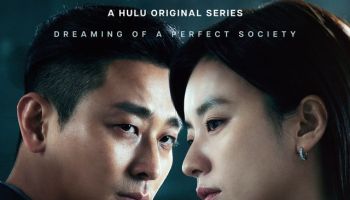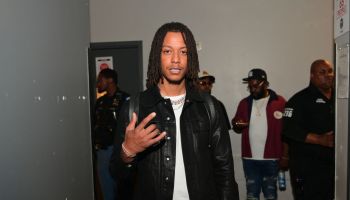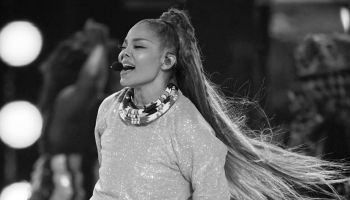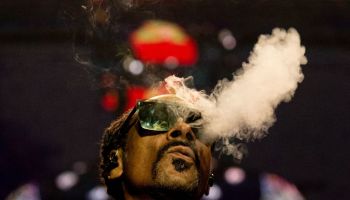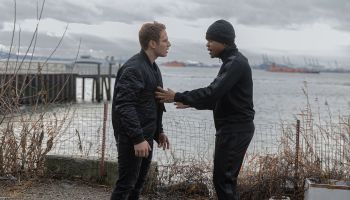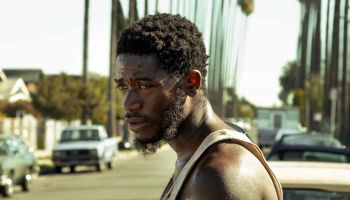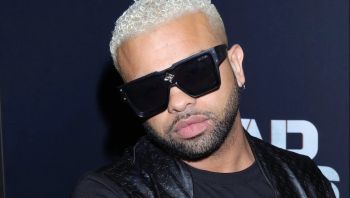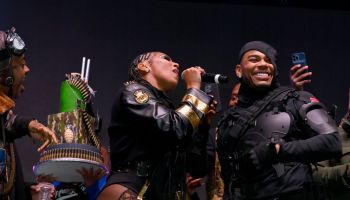We can’t remember the last time a Monday was so eventful.
But last night, CNN had George Zimmerman trial coverage on lock with exclusive interviews from the prosecution’s star witness, Rachel Jeantel, and the first juror to come forward after the trial, B37.
We couldn’t turn our eyes away from both…and for very different reasons. But Rachel’s interview and Juror B37’s interview have one thing in common.
They are the most important interviews that we’ll see come out of the Zimmerman trial.
We’ve heard what Mark O’Mara and Don West had to say. We’ve heard the prosecutors’ side of the story. We know Zimmerman isn’t talking, and even when he does, he’s already been judged by the law and in the court of public opinion. We wish Robert Zimmerman Jr. would never, ever talk. Not even to himself (where is Kanye West when you need him). And we’ve heard Sybrina Fulton and Tracy Martin speak about their loss countless times.
But Juror B37 and Rachel gave us insight to the real questions we had.
Take a look below to see how these interviews gave us a behind-the-scenes look at the most important trial of the year.
Juror B37: What The Jurors Were Really Thinking…
We were all wondering how a jury of six women (five of them mothers) could find a man who murdered an innocent child not guilty. But we needn’t wait any longer. B37, a middle-aged white woman who lives in Sanford and called the protests after Trayvon’s death “riots,” told us all we needed to know about the jury’s thought process:
– Juror B37 told Anderson Cooper that the verdict was initially split among the women. She revealed that one juror thought Zimmerman should be charged with second-degree murder, two believed he should get manslaughter, and three (who eventually dominated), thought Zimmerman was not guilty. In short, three believed he should be charged and three believed in his innocence from the beginning.
– Three of the jurors who believed Zimmerman (who she calls George) was innocent had to believe that there was a reasonable threat to his life. And as B37 puts it, Trayvon was responsible for his own death: It was just hard, thinking that somebody lost their life, and there’s nothing else that could be done about it. I mean, it’s what happened. It’s sad. It’s a tragedy this happened, but it happened. And I think both were responsible for the situation they had gotten themselves into. I think both of them could have walked away. It just didn’t happen.”
– Juror B37 also revealed that the law was confusing, telling Anderson Cooper that they became hung up on the Stand Your Ground law, even though it wasn’t used in Zimmerman’s defense: Right. Because of the heat of the moment and the Stand Your Ground. He had a right to defend himself. If he felt threatened that his life was going to be taken away from him or he was going to have bodily harm, he had a right.
– She agrees with Zimmerman about Trayvon being suspicious…because apparently black boys can’t roam the neighborhoods their fathers live in: Because he was cutting through the back, it was raining. He said he was looking in houses as he was walking down the road. Kind of just not having a purpose to where he was going. He was stopping and starting.
– And in the end, she let us know how the majority of the jury felt about Zimmerman: I feel sorry for both of them. I feel sorry for Trayvon, in the situation he was in. And I feel sorry for George because of the situation he got himself in.
Interesting. Could this be how all the jurors feel, being that they all came to the same verdict in the end?
On the other end, Rachel Jeantel’s anticipated interview gave us a view of the situation from the opposite spectrum. And despite critics noting her “calm” demeanor versus the resistance she showed in court, she was just being herself. And in doing that, she showed us that this isn’t just a murder case, this is the loss of a beautiful life.
Rachel Jeantel’s Interview: The Humanization Of Trayvon Martin:
Rachel’s interview with Piers Morgan is the first time outside of his parents and his brother that we’ve heard someone humanize the teen who became a symbol to supporters, and a thug to the defense. It was a reminder that the trial wasn’t just about Zimmerman’s prosecution…it was about valuing a life lost.
– When Piers asked Rachel what type of person Trayvon was, she flashed a huge smile and said: “He was a calm, chill, loving person, loved his family, definitely his mother. And…a good friend. He was not a thug. They need to know the definition of a thug.”
– She reminded us that her hesitancy to answer Don West’s aggressive questions wasn’t because she didn’t want to be in court, rather, it was because she was grieving the death of one of her best friends. She and Trayvon were so close that it hurt to face the man that shot him dead: “It’s not that I didn’t want to be there (in court). I was dealing with a lot of stress for 16 months. I was grieving.”
– Her interview was also the first time that we heard from someone other than Trayvon’s family that he was a calm, considerate kid. The defense team’s smear campaign painted him as a fighter who loved confrontation, weed and guns. When discussing if the teen could have approached Zimmerman, Rachel responded: “Trayvon was too quiet. Why would he run if he was going to confront and beat [George Zimmerman]?” She added that he was scared to lead the neighborhood watch volunteer to his father’s house, as his younger stepbrother was there.
– And in the end, the girl who many said was uneducated, a liar and unwilling to cooperate, was just a girl frustrated with the loss of her friend, who she told Piers she spoke to every single day. “He was funny,” she said. “And he loved his family, definitely his mom.”








